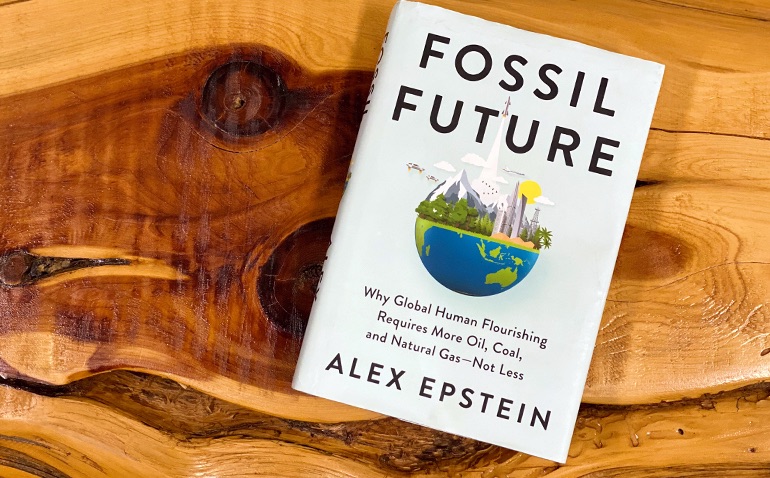
BPF Book Review of Alex Epstein’s “Fossil Future”
Are we all Malthusians now? Listening to today’s elite leaders from the academic, media and political realms could leave one to conclude as much. Thomas Malthus (1766-1834) was a Cambridge educated philosopher, economist and a high profile thought leader at the turn of the 18th century.
Malthus gained great fame and long-term notoriety for his apocalyptic predictions of doom and gloom about the future. The logic behind his pessimistic outlook was straightforward: the world’s population would grow exponentially while its means of material subsistence would grow at meager arithmetic rates resulting in cycles of famine, poverty and long-term economic ruin. The world’s only hope from this dismal perspective was to limit population growth. In 1798, when Malthus first published An Essay on the Principle of Population as It Affects the Future Improvement of Society, life was rugged, diets were modest and lifespans were short. Not much improved from Thomas Hobbes’ famous observation in 1651 that the life of man was “solitary, poor, nasty, brutish and short.” What Malthus or any of his peers could not have known in 1798 was that a big upside surprise was on the way that would radically enhance economic growth and the prospects for human advancement.
The Industrial Revolution was only decades away. The critical ingredient and catalyst for that paradigm-shifting economic era was fossil fuels. Coal followed by kerosene, oil, gas and their many derivatives were powerful elixirs when combined with human ingenuity. They dramatically increased the trajectory of human progress and quality of life. Even today, full into the Information Age, fossil fuels are still unmatched for their combination of energy density, on-demand, low cost, storability and safety.
Malthus’ theory failed the test of time, but he maintains his spot in history for being famously pessimistic and wrong. But despite the transcendent gains of the past two centuries, pessimism still dominants perspectives at the elite levels. Our knowledge system, its synthesizers and disseminators seem stuck in a Malthusian time warp. Ironically, the pessimists’ target is now fossil fuels. That is a paradox.
Which is why you should read this book: Fossil Future: Why Global Human Flourishing Requires More Oil, Coal, and Natural Gas – Not Less. Alex Epstein, the author, is a clear thinker who trained in philosophy at Duke University. Over the past decade, he has become a recognized expert on energy thanks to the New York Times bestseller status of his first book, The Moral Case for Fossil Fuels, published in 2014.
Fossil Future is chock full of data, charts and anecdotes telling in great detail the roles fossil fuels played in creating today’s cornucopia of abundance. Especially compelling are the “hockey-stick” charts that reveal the close correlation between the development of hydrocarbons and the dramatic rise of world GDP, world population, world life expectancy and human flourishing.
Epstein goes on to make the vitally important point that the quests for “Net-Zero Emissions” and other green objectives avoid any cost-benefit analysis. Why? The costs of alternatives are extreme, and the benefit of fossil fuels are great. The developing world has figured this out. Consider much maligned coal. Contrary to the wishes of the catastrophizers, global coal production and consumption hit all-time highs in 2022. According to the International Energy Agency, while coal consumption has fallen in advanced economies, China, India and Indonesia all hit production records in 2022. Why? Simple, it’s due to the inexorable desire in the developing world for more and more cheap and reliable electricity.
Epstein’s philosophical framework of human flourishing is the appropriate realm in which to confront the siren songs of doom and gloom that emanate from so many of today’s thought leaders. Fossil Future provides an excellent cost-benefit analysis of fossil fuels and the alternatives.
Sign up for BPF’s latest news here.
